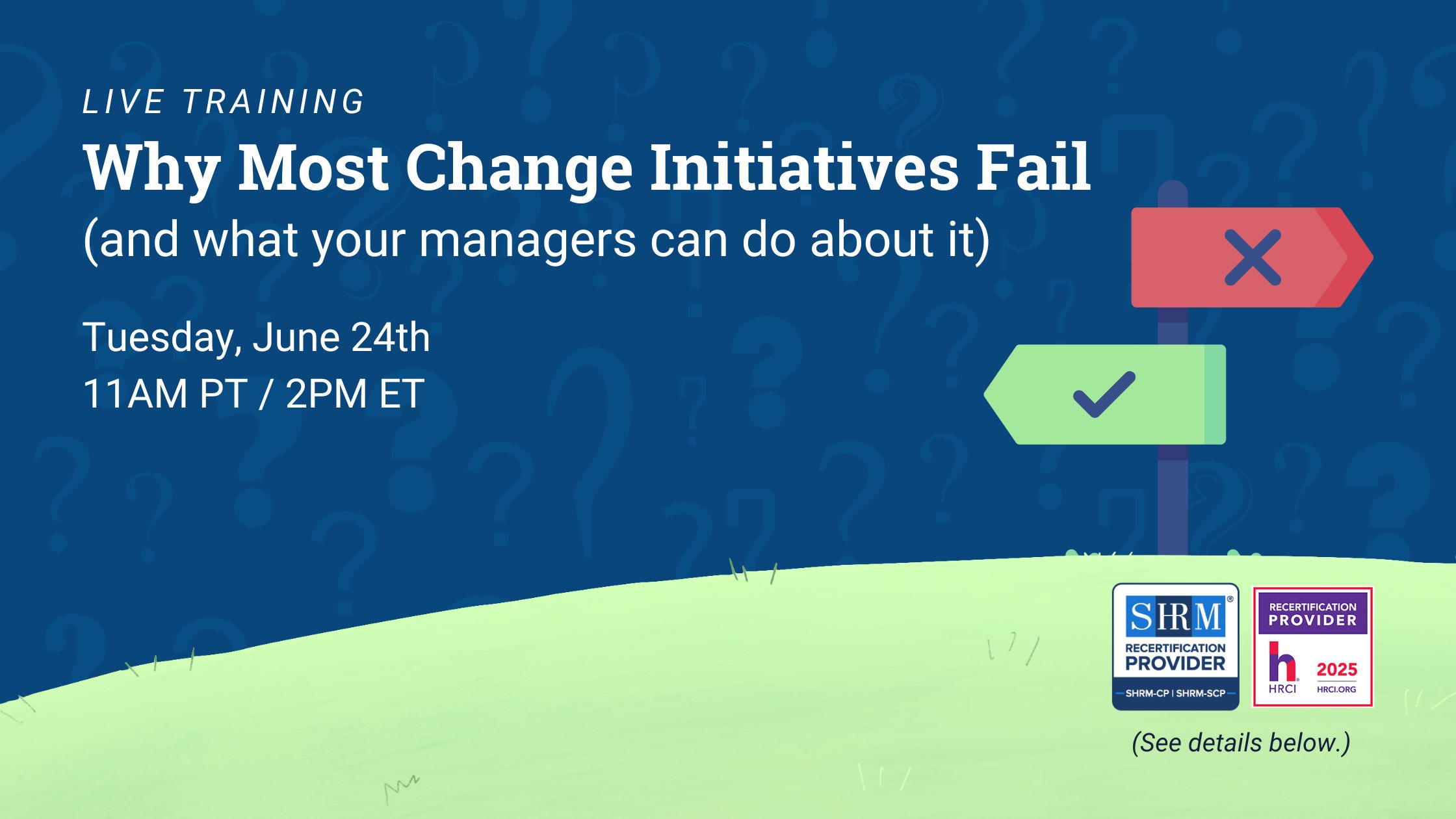Getting fired from your job can be emotionally devastating. A termination forces you to address immediate, often stressful concerns—like finding a new source of income and securing continuing health coverage. But because our jobs also touch on everything from our personal identities to our day-to-day friendships, a sudden end to employment can lead us to question even our core sense of self.
That said, getting fired is also an extremely common experience. Many others have walked this path before you—and survived and thrived. Here are 8 steps demonstrating what to do if you get fired.
1. Be prepared.
If you haven’t been fired yet but have a sense the end is near, take action now—whether it’s to forestall a termination or to ready yourself for departure.
Should you want to keep your job, don’t ignore the warning signs. The New York Times recommends you confront your anxieties head on by asking your boss how you could better fulfill your role in the organization—then putting that feedback into action.
If you’d rather explore new opportunities or feel your current employment relationship is unsalvageable, make preparations to leave. Back up all the files you need, copy the contact information of people you want to keep in touch with, and wipe your personal information off your work computer and phone. Read over your employee handbook and find out local and state laws concerning terminations so you know what you’re entitled to and what to expect. Get on top of your healthcare appointments, and do your best to save up an emergency fund of three to six months to tide you over until you land. That way, you’ll have be prepared and know what to do if you get fired.
2. Ask questions.
As soon as you’re fired, ask why. Although companies aren’t required to give you a reason if your employment was at-will, you’ll likely receive a response should you inquire. Knowing the reason for the termination will help give closure to the experience and better enable you to learn from it.
If you want to keep your job, you could try asking for an appeal or a chance to be put on probation while working to improve your performance. But if your company says no, let it go without arguing your case too much.
You could also ask if you can resign instead of getting fired. This might make it easier to talk about your employment history with future job interviewees. If you’re considering this route, keep in mind resigning makes it nearly impossible to get unemployment benefits; it also makes it tougher to win a wrongful termination lawsuit. That said, it’s the rare termination case that requires legal action, and many state laws make it difficult to receive unemployment benefits if you’re fired for cause anyway—so you may not be losing anything by asking your company for a more neutral reason for separation. If unemployment benefits are a primary concern for you, you have the option to instead ask the company not to contest your claims for unemployment.
Other practical questions to ask include:
- When will I get my last paycheck? (Some states require that your employer provide you with this on your last day of work.)
- Will I be compensated for unused vacation or sick time? (You’re legally entitled to this compensation in some states.)
- How long will the company cover my health benefits?
You might also benefit by asking your company to serve as a neutral, or even positive, reference that doesn’t mention your getting fired. Even if you’ve been fired for cause, you have a good chance of getting a yes to this request. As Reader’s Digest notes, “These days, employers are so worried about possible legal issues that can result from giving a poor reference that you’ll find they’re generally very limited on detail.”
3. Negotiate your severance package.
If you get fired for cause, you may not be offered a severance package. But in some cases, your company might be willing to offer you benefits in return for your signing an employee separation agreement.
An employee separation agreement generally spells out what severance benefits you’ll receive, if any, and states that you waive your right to sue for wrongful termination or additional severance benefits. Don’t feel pressured to sign this document right away. Forbes advises not signing at the point of termination, so that you have time to think it over, negotiate, and perhaps seek help from an employment attorney. Getting outside counsel can give you a clearer sense of what to do if you get fired.
A standard severance package includes severance pay—usually tied to the seniority of your position and the length of your service. Your package may also include extended health and life insurance benefits, stock options, and other perks specific to your company or position such as employer-sponsored daycare or subsidized gym memberships.
4. Ask for outplacement services.
Unless you work in human resources, you likely don’t know what outplacement means, even if you’ve received the service in the past. Basically, outplacement is career transition assistance provided by a company to departing employees to help them land new jobs quickly and easily.
Especially in the case where you haven’t been on the job market for a while, you may not have a clear sense of what to do if you get fired in terms of finding a new job. In these situations, outplacement can provide much-needed support. The quality of outplacement programs vary widely, but a good one usually includes personalized career coaching, resume reviews to improve your personal marketing materials, and other career management tools.
An experienced career coach can help you with every step outlined in this article, including helping you craft a compelling response for questions you might get during job interviews regarding the reasons for your termination. It’s an invaluable service for exiting employees, which is why many companies do offer outplacement services—but often reserve them for executive or senior-level employees. If you ask for it too, your company might be willing to extend the service to you.
5. Leave on a positive note.
Getting fired can be a real personal blow in the moment, but it doesn’t have to result in a lifetime of acrimony and bitter feelings against your former company. During and after the termination meeting, make sure to keep it professional—both in person and on social media. Keep in mind that your former employers will serve as future references, formally and by word of mouth.
Do your best to help with the transition at your former company if you’re asked and have the time to do so. If asked for an exit interview, go ahead and agree to do it. Of course, should spending time helping your former employer create undue emotional stress or personal hardship, you should put yourself first and decline politely, stating that your current job search requires your focus. In determining what to do if you get fired, always put your needs first, not your former company’s.
If you had allies at your company, reach out to them and retain them as friends and key work references. U.S. News & World Report has a helpful tip for managing this: “A good way to mitigate awkwardness with former co-workers who might be unsure how to handle your firing: Tell them what you liked about working with them and why they are good at what they do. People will be impressed by your classiness.”
6. Consider hiring an employment attorney.
If you suspect you were wrongfully terminated, you may want to pursue legal action. Reasons for wrongful termination include:
- discrimination on the basis of race, gender, religion, age, or other protected criteria
- violations of written promises in your job contract or other statements
- breaches of good faith and fair dealing (e.g. firing employees to prevent them from collecting sales commissions)
- violations of public policy (e.g. firing employees for serving on a jury)
- retaliation for serving as a whistle-blower when the company broke a law
- retaliation for refusing to commit an illegal act
To determine if your firing was a case of wrongful termination, you can learn more about the federal and state laws from the U.S. Department of Labor and your state labor department and file a claim directly, or consult an employment attorney. Your lawyer will be able to advise you on what to do if you get fired for unjust reasons.
7. File for unemployment services.
Check with your state unemployment office to see if you’re eligible for unemployment benefits, and apply for them as soon as possible if you are. In terms of what to do if you get fired, filing for unemployment benefits should be near the top of your to-do list.
8. Made decisions about your retirement savings.
According to Forbes, “you generally have three options for your 401(k) or other nest egg: you can leave it be (if the balance is $5,000 or more), roll it into a new employer’s plan (if allowed), or roll it into an IRA.” Find out what your personal options are—with the help of a financial advisor, if necessary—and make the best decision for your future.
__
Now you know what to do if you get fired. As you take these steps, don’t take the experience as a sign that you’re uniquely unemployable or incompetent, even if you might feel that way in the moment. Remember, Hillary Clinton, Oprah Winfrey, and Steve Jobs have all been fired from their jobs, as have many other successful people. You too can take your firing into stride and use it as an opportunity for growth.
INTOO outplacement offers career transition services to support people in their transition to new jobs. Learn more about our outplacement program, and ask your company to offer outplacement services as part of its employee benefits package.











